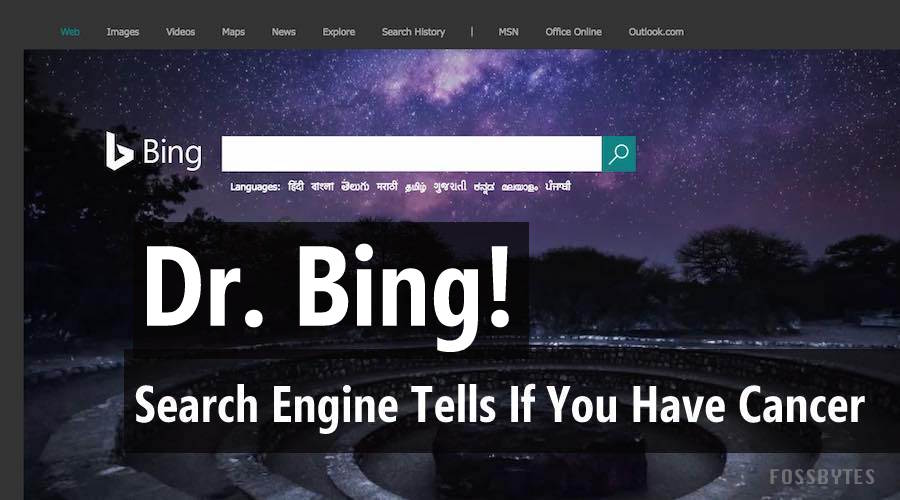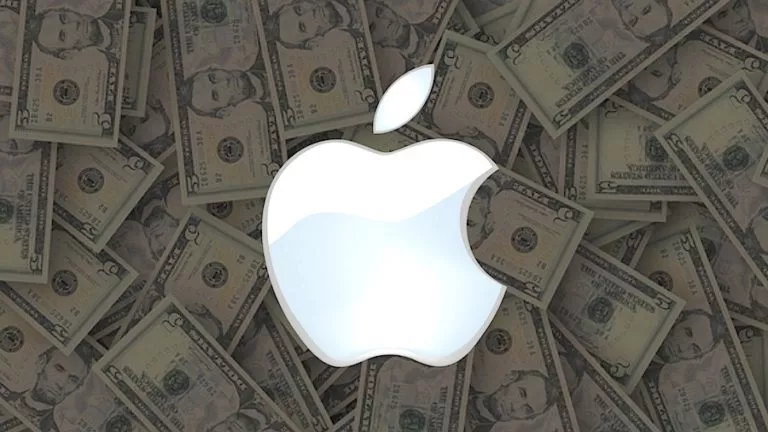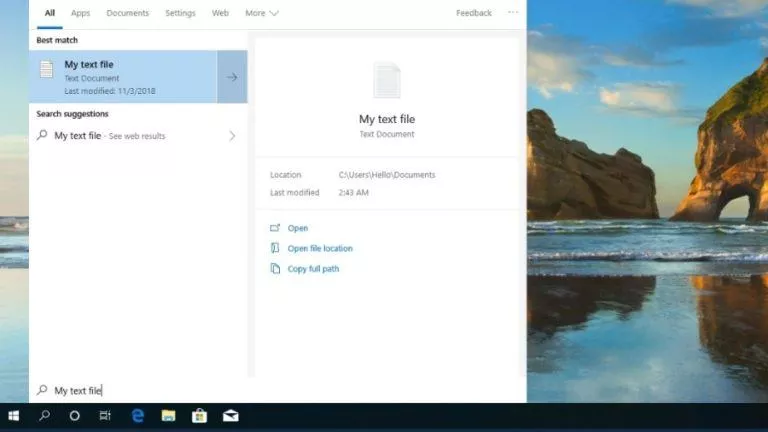Microsoft’s Bing Search Engine Detects Pancreatic Cancer From Search Queries

 Short Bytes: A new study has been conducted by Microsoft Research which enables Bing search engine to detect pancreatic cancer by analysing large data samples of search queries made by users. The study, which can become a milestone in medicine, has been published in the Journal of Oncology Practice.
Short Bytes: A new study has been conducted by Microsoft Research which enables Bing search engine to detect pancreatic cancer by analysing large data samples of search queries made by users. The study, which can become a milestone in medicine, has been published in the Journal of Oncology Practice.
Scientists at Microsoft Research have successfully empowered the Bing search engine to detect potential cancer patients based on the symptoms. What exactly the search does is that it keeps an eye on anonymized search queries (no user identification possible) of the users and pays attention to those which point toward cancer-related symptoms on the internet, more precisely, on Bing. Obviously, it can’t peep into Google’s search queries.
The study conducted by Eric Horvitz, John Paparrizos, and Ryen W. White was focused on those users who were searching for the symptoms and problems related to pancreatic cancer. By analyzing large chunks of search query samples, they were able to predict that a person is suffering from pancreatic cancer. According to the researchers, the percentage of cases that could be identified is around 10 to 15 while attaining low false positive rates of 1 in every 100,000.
Also Read: How Search Engine Works and Makes Your Life Easier?
“We asked ourselves, ‘If we heard the whispers of people online, would it provide strong evidence or a clue that something’s going on?’” – said Dr. Horvitz. They backtracked the search query pattern from the point where they noticed someone had been diagnosed with pancreatic cancer.
Now, the question that gathers the centre of attention is about the use of the data collected. The researchers know that someone has cancer, so, that person should have to be informed. A platform should be maintained where the data can be collected with user’s consent and the person can be notified of the illness. Dr. Horvitz hinted towards an integration of this medical study thing into Microsoft’s voice assistant Cortana. Hopefully, it will have an upper-hand over Siri.
“Horvitz, an artificial intelligence expert who holds both a Ph.D. and an MD from Stanford University, said the researchers found that queries entered to seek answers about that set of symptoms can serve as an early warning for the onset of illness” — according to a blog post by Microsoft.
The advancement in the thinking power of the search engines is a boon to the digital community. People spend most of their time googling and binging about various things. The inclusion of artificial intelligence in the search engines will definitely be a progressive step towards accurate detection of a medical problem.
This study was published in the Journal of Oncology Practice.




